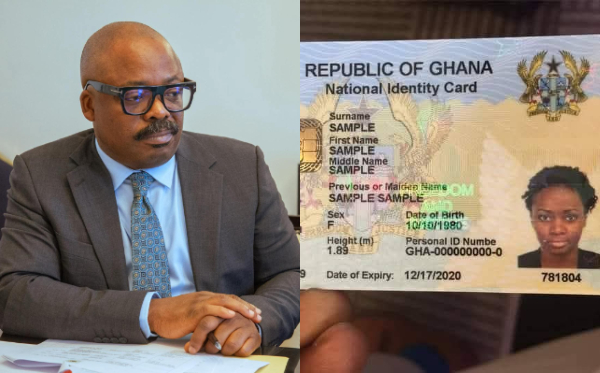Government has placed an immediate moratorium on the procurement, development, and use of independent Automated Fingerprint Identification Systems (AFIS) by all Ministries, Departments, and Agencies (MDAs) as well as Metropolitan, Municipal, and District Assemblies (MMDAs) to streamline Ghana’s biometric identification ecosystem.
The directive, communicated through a letter signed by the Secretary to the President, Dr. Callistus Mahama, aims to protect citizens’ biometric data, standardize identification systems, and ensure efficient use of public resources.
It also reaffirms the exclusive authority of the National Identification Authority (NIA) over national identity registration and the issuance of the Ghana Card.
Ghana Card saves $1.5bn
It is estimated that the Ghana Card has saved the country about $1.5 billion — funds that would otherwise have been spent by various state institutions to collect data for citizens’ access to government services.
However, despite this significant national investment, several government agencies have yet to integrate their operations with the Ghana Card system.
Instead, they continue to procure new biometric equipment and maintain separate data collection systems, resulting in costly duplication, inefficiency, and waste of scarce public resources.
NIA’s exclusive mandate reinforced
The new order strengthens the NIA’s position as the sole custodian of biometric data under the National Identification System (NIS).
The government emphasized that the NIA already operates a robust biometric AFIS designed to verify identities using the Ghana Card, as prescribed under Legislative Instrument 2111.
According to the letter, the centralized NIA system ensures interoperability, prevents duplication of identity databases, enhances data protection, and significantly reduces the costs of maintaining multiple biometric systems across different public agencies.
“This measure is in line with the Data Protection Act, 2012 (Act 843), which mandates strict adherence to data integrity and the protection of citizens’ personal information,” the statement added.
Ban on new biometric procurements
Effective immediately, all MDAs, state corporations, and regulatory agencies are prohibited from procuring or deploying new independent biometric AFIS or operating parallel biometric databases outside the NIA framework.
The directive also forbids government institutions from verifying individuals’ identities solely through visual inspection of the Ghana Card.
Instead, MDAs must use biometric authentication and verification systems that are fully integrated with the NIA’s National Identification System.
No new contracts involving biometric systems may be entered into without explicit authorization from the Office of the President.
6-month deadline for integration
MDAs that are currently using independent AFIS platforms have been given a six-month window—up to April 24—to fully integrate their systems with the NIA’s National Identification System.
The NIA has been instructed to provide the necessary technical assistance to facilitate harmonisation and migration of existing biometric data into the National Identity Register and the Identity Verification System Platform.
Failure to comply, the letter warns, will render any procurement or continued operation of parallel biometric systems illegal and a breach of presidential directive.
Oversight and enforcement
The Minister for the Interior, Alhaji Muhammed Muntaka Mubarak, has been tasked with supervising the implementation of the moratorium and empowered to enforce compliance where necessary.
Agencies that require specialized biometric systems due to unique operational demands must submit a formal justification to the Office of the President and obtain written approval before initiating any procurement or system development.
The directive, which takes immediate effect, will remain in force until further notice. It marks a major milestone in the government’s effort to build a unified, secure, and interoperable national biometric identity system anchored on the Ghana Card — a foundation expected to drive digital governance, financial inclusion, and efficient public service delivery across the country.












